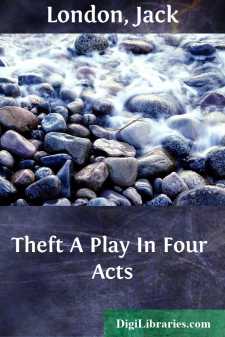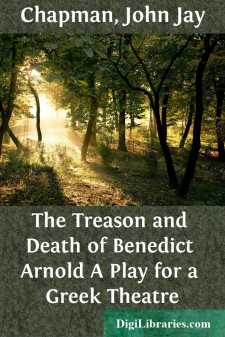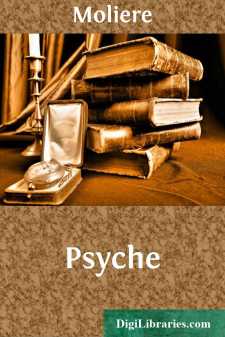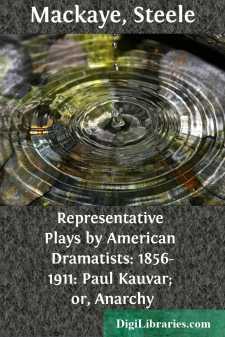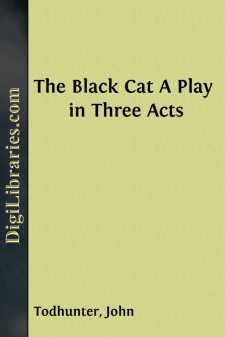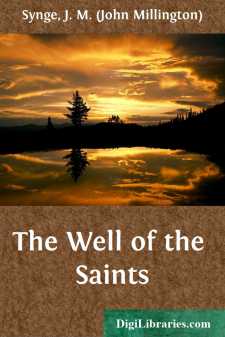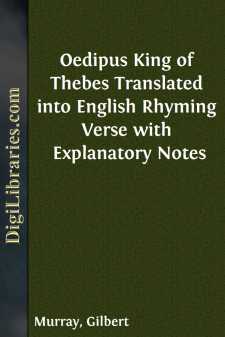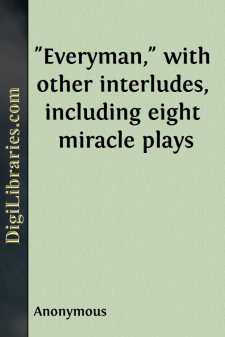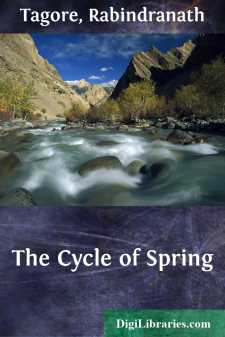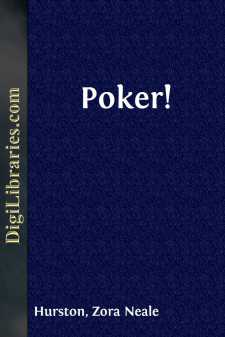Drama Books
Sort by:
by:
Jack London
ACTORS' DESCRIPTION OF CHARACTERS Margaret Chalmers. Twenty-seven years of age; a strong, mature woman, but quite feminine where her heart or sense of beauty are concerned. Her eyes are wide apart. Has a dazzling smile, which she knows how to use on occasion. Also, on occasion, she can be firm and hard, even cynical An intellectual woman, and at the same time a very womanly woman, capable of...
more...
by:
John Jay Chapman
TREASON AND DEATH OF BENEDICT ARNOLD ACT I The margin of the Hudson at West Point. Fort Putnam and the Highlands in the distance. A flag is fluttering on the fort. The orchestra represents the level of the river shore, upon which level the Chorus will enter. The characters of the drama appear on a bank or platform, slightly raised above the orchestra and Chorus. At the opening of the play Father Hudson...
more...
by:
Moliere
PROLOGUE. The front of the stage represents a rustic spot, while at the back the sea can be seen in the distance. SCENE I. Flora. appears in the centre of the stage, attended by Vertumnus, god of trees and fruit, and by Palemon, god of the streams. Each of these gods conducts a troup of divinities; one leads in his train Dryads and Sylvans, and the other River Gods and Naiads. Flora sings the...
more...
by:
Steele Mackaye
STEELE MACKAYE (1844-1894) When one realizes the sociological purpose behind Steele Mackaye's "Paul Kauvar; or, Anarchy," it is interesting to note how inefficient the old form of drama was to carry anything more than the formal romantic fervour. Compared with John Galsworthy's treatment in "Strife" and "Justice," it makes one glad that realism came and washed away all...
more...
by:
John Todhunter
Act I. Scene: Denham's Studio. Large highlight window in sloping roof at back. Under it, in back wall, door to landing. l of the door the corner is curtained off for model's dressing-room. r of door a large Spanish leather folding screen, which runs on castors, shuts off from the door the other corner, in which is a "throne," pushed up against the wall. Above the "throne"...
more...
ACT I [Roadside with big stones, etc., on the right; low loose wall at back with gap near centre; at left, ruined doorway of church with bushes beside it. Martin Doul and Mary Doul grope in on left and pass over to stones on right, where they sit.] MARY DOUL. What place are we now, Martin Doul? MARTIN DOUL. Passing the gap. MARY DOUL — [raising her head.] — The length of that! Well, the sun's...
more...
by:
Gilbert Murray
PREFACE If I have turned aside from Euripides for a moment and attempted a translation of the great stage masterpiece of Sophocles, my excuse must be the fascination of this play, which has thrown its spell on me as on many other translators. Yet I may plead also that as a rule every diligent student of these great works can add something to the discoveries of his predecessors, and I think I have been...
more...
by:
Anonymous
INTRODUCTION By craftsmen and mean men, these pageants are played,And to commons and countrymen accustomably before:If better men and finer heads now come, what can be said? The pageants of the old English town-guilds, and the other mysteries and interludes that follow, have still an uncommon reality about them if we take them in the spirit in which they were originally acted. Their office as the...
more...
Characters of the Prelude King, Vizier, General (Bijoy Varma) Chinese Ambassador, Pundit (Sruti-bhushan) Poet (Kabi-shekhar), Guards, Courtiers, Herald The stage is on two levels: the higher, at the back, for the Song-preludes alone, concealed by a purple curtain; the lower only being discovered when the drop goes up. Diagonally across the extreme left of the lower stage, is arranged the king's...
more...
SCENE— A shabby front room in a shotgun house. A door covered by dingy portieres upstage C. Small panel window in side Wall L. Plain centre table with chairs drawn up about it. Gaudy calendars on wall. Battered piano against wall R. Kerosene lamp with reflector against wall on either side of room. At rise of curtain NUNKIE is at piano playing…. Others at table with small stacks of chips before each...
more...


